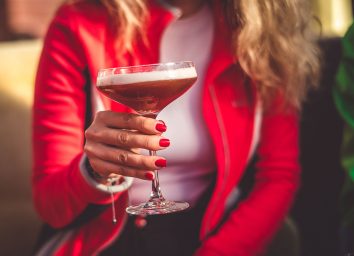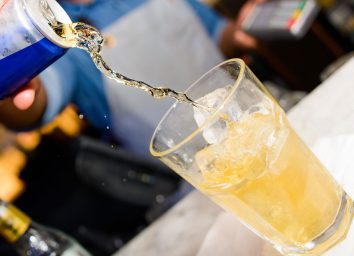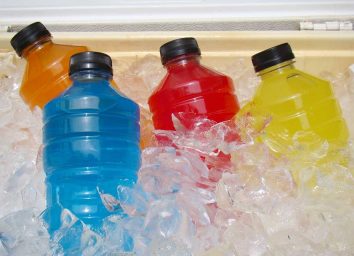Popular Drinks Proven to Do Bad Things to Your Body, Says Science
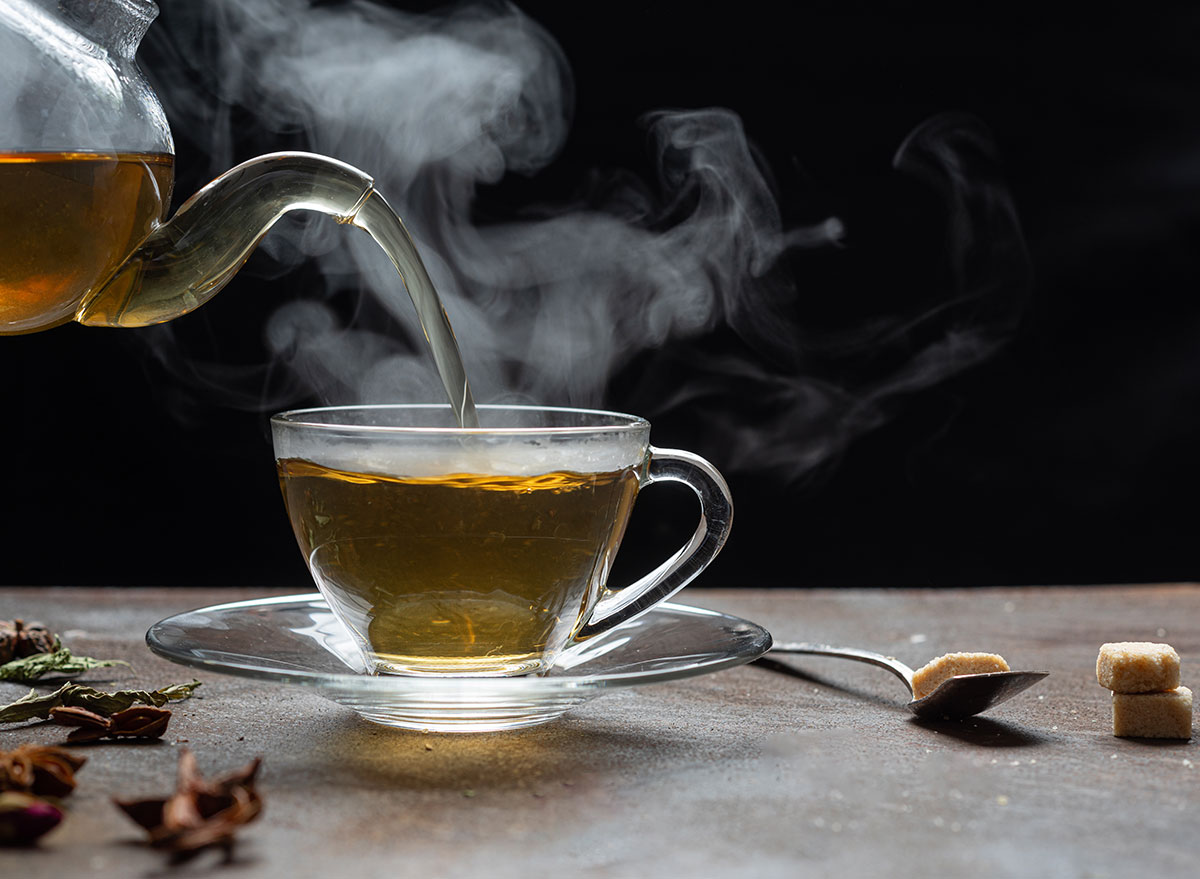
Most of us sip on something throughout the day to avoid getting thirsty or dehydrated. While that’s usually water, the options are endless when it comes to quenching thirst. And of course, some drinks serve a purpose of purely pleasure.
For those that are health-conscious, you probably grab something with added nutritional benefits. But even some drinks you think are healthy could be hurting your health. Here are 5 drinks (some surprising) that science has proven may be doing more damage than good for your health. Read on, and for more on how to nourish your body the right way, don’t miss 7 Healthiest Foods to Eat Right Now.
Fruit Juice
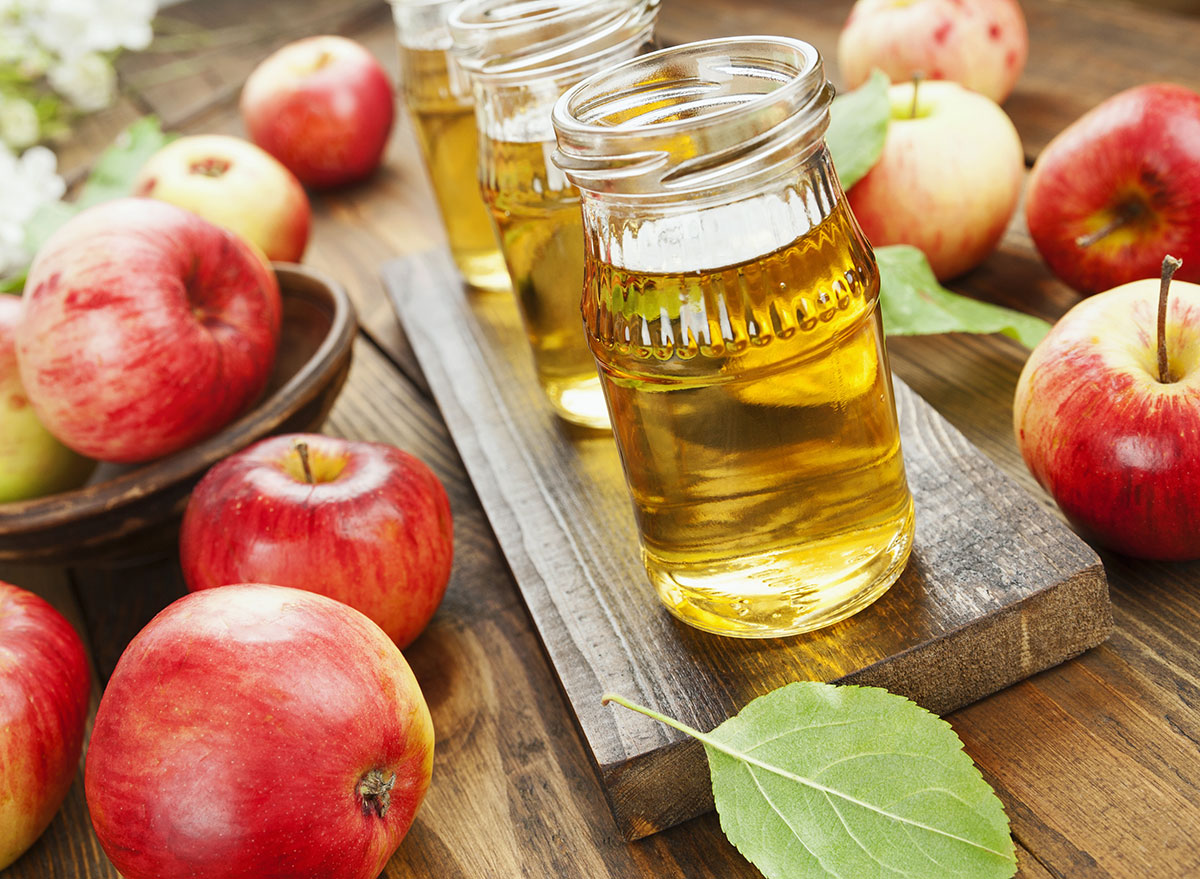
If you love to pour yourself a glass of fruit juice with breakfast or during snack time, it may be a poor choice if you’re health-conscious. A 2019 study published in JAMA Network found that each 12-ounce daily serving of fruit juice was associated with a 24% higher mortality risk. Researchers from Cornell University, Emory University, and the University of Alabama observed 13,440 adults 45 and older for an average of six years and found that drinking juice every day increased mortality risk because research has linked sugar-sweetened beverage consumption in the past to coronary heart disease risk—and that includes 100% fruit juices, even though they contain some vitamins and phytonutrients that are missing from most sugary drinks.
Energy Drinks
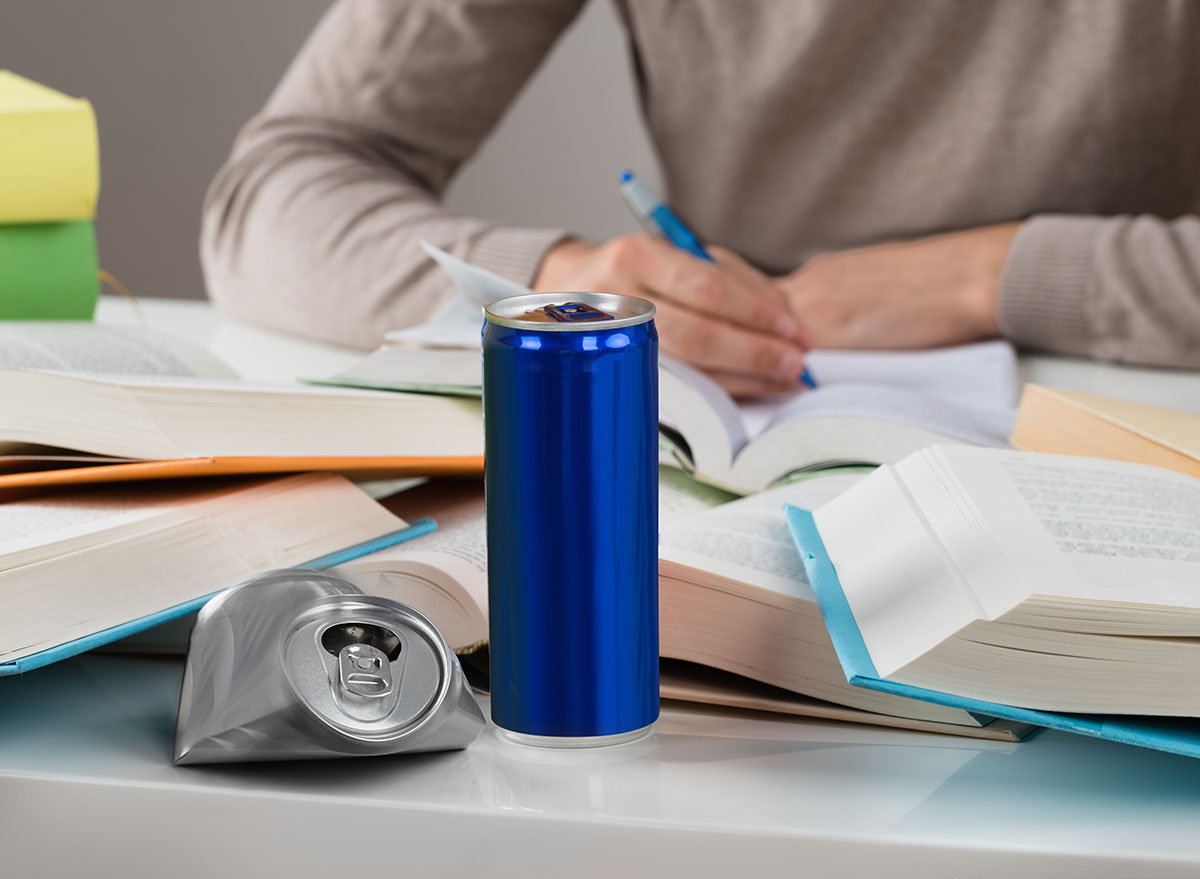
The point of drinking energy drinks is to get a serious ‘energy’ boost, which usually comes from caffeine. However, while Food and Drug Administration enforces a limit of 71 milligrams per 12 ounces of soda, energy drinks contain almost twice that: around 120 milligrams per 12 ounces, according to the Harvard School of Public Health. That’s because energy drink manufacturers maneuver around the FDA regulations by classifying their drinks as supplements: a food ‘group’ the FDA doesn’t regulate. So the amount of caffeine in many energy drinks is excessive, and can cause serious health issues for people, including increased stress, aggressive behaviors like fighting, alcohol/cigarette abuse, increased blood pressure, increased risk of obesity and type 2 diabetes, poor sleep quality, and stomach irritation per a 2017 study published in the journal Frontiers in Public Health. For more, don’t miss 12 Dangerous Side Effects of Energy Drinks, According to Science.
Coffee

If you’re a true coffee lover, you know how easy it can be to go through a pot a day. But you may be doing some serious damage to your heart and may raise your risk of cardiovascular disease (CVD). A 2019 study published in the journal Clinical Nutrition found that people who drink at least 6 cups of coffee per day are at a heightened risk of CVD. “long-term, heavy coffee consumption [of] six or more cups a day” increases the amount of lipids in your blood due to a potent cholesterol-elevating compound in coffee beans called “cafestol.” The researchers found that “cafestol is mainly present in unfiltered brews, such as French press, Turkish and Greek coffees, but it’s also in espressos, which is the base for most barista-made coffees, including lattes and cappuccinos.”
This doesn’t mean you need to give up coffee entirely. Just make sure you’re not going overboard: 7 Warning Signs You’re Drinking Too Much Coffee.
Comfrey Tea
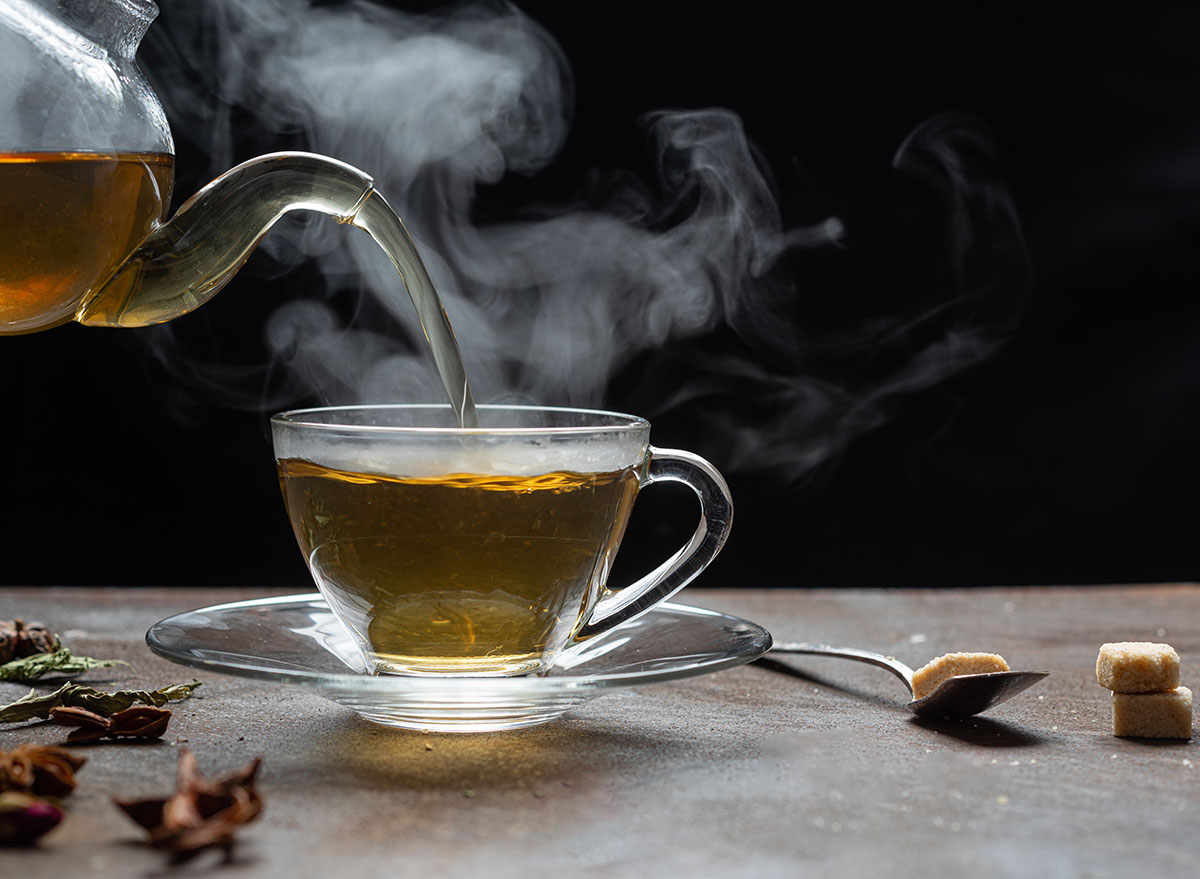
If you prefer tea over coffee, you still should be wary of overdoing your consumption of Comfrey tea, especially if you have liver issues due to the tea’s high levels of pyrrolizidine alkaloids, which can cause liver damage. A 2004 article published in Public Health Nutrition found that “consumption of herbal teas made from comfrey leaves may be ill-advised,” because they may contribute to liver toxicity. And a 2018 study also found that comfrey tea could cause cancer. Researchers found that the tea’s 14 pyrrolizidine alkaloids “interact” with the liver and may damage its DNA, mutate it, and cause cancer. And in 2001, the FDA did advise Comfrey tea to be removed from markets.
Bourbon
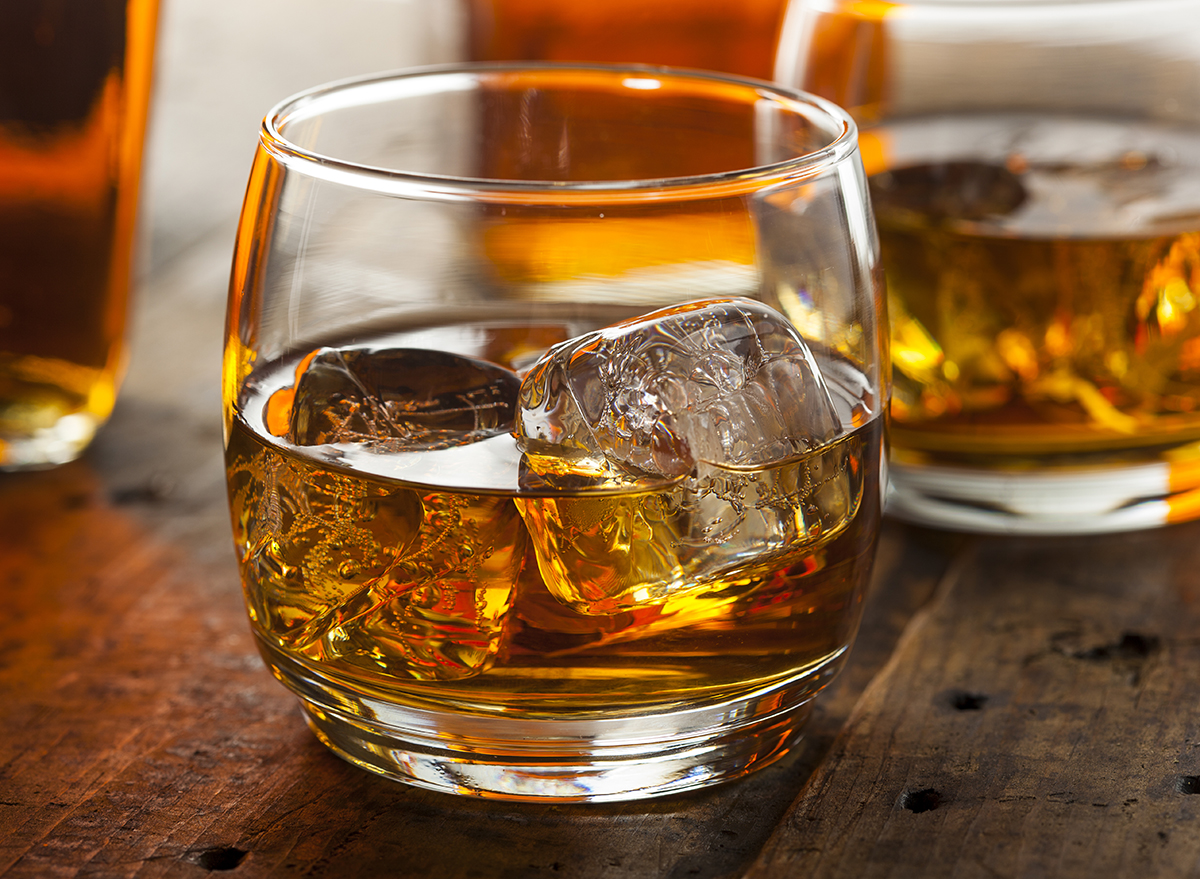
Alcoholic drinks can be both terrible and beneficial to your body, depending on your drink choice. However, if you’re looking to drink hard alcohol and not get a hangover, then you should probably avoid brown liquor like bourbon. A 2010 study by researchers from Brown and Boston University compared bourbon and vodka drinkers and found that hangovers were 36% worse in bourbon drinkers. In the study, the researchers recruited 95 “heavy” drinkers who drank either vodka or bourbon until their blood alcohol concentration (BAC) reached .10 (aka, they were intoxicated), and then assessed their hangover symptoms based on things like thirst, headache, nausea, and increased heart rate. The reason for worse hangovers with bourbon? The researchers believe you can blame “congeners”—substances that give alcoholic drinks their flavor that have compounds from wood casks during aging. If you want to avoid a bad hangover, limit your bourbon intake to just a serving and read up on these 20 Tips for Choosing Healthy Alcoholic Drinks.
